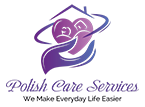
What is the Difference Between Live-In and Hourly Home Care?
November 21st, 2025Caregiver Agency, caregiver support, Companion Caregiver, Home Care, Homecare, Senior Care Services, Senior Services,
Do you have elderly seniors or immobile family members? Then you must know the importance of working with a home care agency. But it is really complicated to find the right kind of support. It takes a bit of heart and a lot of patience.
Families may come across two main choices — Live-In Home Care and Hourly Home Care. Both are supportive, both promise comfort. But they work in different ways.
Sometimes it is hard to see which one truly fits your situation until you understand what daily life looks like under each plan. And if you mistakenly make the wrong decision, it may have a negative impact.
But do not worry! As a well-known and trusted home care agency that serves multiple areas across Connecticut and Florida, we have come up with this blog. Here, you will be enlightened about each type of non-medical caregiver services and their nuances. So, before choosing one, you know what will go best with your situation.
But before anything, you have to understand what home care and caregiver services mean. So, you can better learn about what you will get out of this support.
What Home Care Services Mean in Connecticut and Florida: A Simple Overview
We know how important it is for seniors to stay in a familiar space surrounded by their memories. Home care helps such people live safely and comfortably in their own homes rather than moving into a facility.
Our caregivers provide what is known as non-medical support. This support may include help with:
Bathing (in Connecticut only)
Meals
Light cleaning
Companionship
Mobility assistance (in Connecticut only)
As a registered homemaker companion agency, our caregiver services across Connecticut and Florida will help your loved ones live with more confidence. But before you choose a service, you need to understand what each type of care really means.
What Does Live-In Home Care Services Offer? Why is it Important?
Live-in care means a non-medical caregiver stays in the home during the day and overnight, but this service cannot be 24/7. The caregiver must receive sleep time and breaks by law.
Live-in care is available only in Connecticut. Florida does not allow live-in care. In Florida, families may choose hourly or 24/7 care through rotating caregivers.
In a live-in setup, the caregiver receives a space to rest and sleeps when the client sleeps. Usually, the same caregiver or two rotating caregivers manage the support.
When Live-In Care is the Best Choice (CT Only)
Live-in care is a good choice if your loved one:
Wakes up at night or needs more frequent assistance.
Lives alone and feels unsafe without company
Needs help with most daily activities
Has Alzheimer’s, Dementia, or memory challenges and needs consistent non-medical supervision
Live-in caregivers provide both non-medical care services and emotional comfort. This option will get them a trusted companion who is always there.
What’s Included in Live-In Care?
It generally covers:
Daily non-medical personal support
Meal planning and light cooking
Mobility help and transfer assistance
Housekeeping and laundry
Companionship and emotional care
Help with appointments and medication reminders
Reasons to Hire a Live-in Caregiver
When you hire live-in care, you get daily support for your loved ones. Here’s what families often tell us:
Someone is always around, so your loved one is never alone or worried about being by themselves.
Nights are easier. If they wake up or need help, the caregiver is right there to check on them.
Families worry less. You don’t have to keep calling or driving over to make sure everything’s fine.
Care feels personal. It’s not a different person every few hours. It is one caregiver who learns your family’s routine and fits in naturally.
Home stays the same. They keep their own space, their things, their memories. Nothing has to change.
They get a real companion. Someone to talk to, share meals with, or just sit with during quiet moments.
Everyone sleeps better. You know they’re safe, comfortable, and cared for. It’s simply peace of mind.
If you search for live-in caregiver support in Connecticut for an elderly person, contact us. Our caregivers have gone through background checks, reference verification, and hands-on practice.
In Florida, this option is replaced with hourly or 24/7 care because live-in is not permitted.
What is Hourly Home Care? What Are Its Benefits?
The main reason is getting support when you need it most. Hourly home care gives you flexibility. Instead of someone staying all day, you get a caregiver who visits for set hours.
You can also choose hourly overnight support, which usually runs for 8 to 12 hours.
Families who use this type of care generally have someone living with their loved one already, but need extra help during busy hours. If you look for hourly caregiver services in Connecticut or Florida, you may trust our agency to find the right fit. If you want to know more about us and how we can support your loved ones, you can directly call us at 8602558278 (for CT) or 941-212-0310 (for FL).
Hourly Care Might be Best If:
You only need a few hours of help per day
Your loved one is mostly independent
You already provide some care and just need breaks
You want a budget-friendly plan with no overnight stays
You want overnight support without live-in care
What is Included in Hourly Caregiver Services?
Hourly caregiving is meant to make everyday life easier, safer, and less stressful for both seniors and families. The services usually cover the most common daily needs:
Personal care and hygiene support (CT only)
Meal preparation and light kitchen help
Medication reminders to keep track of daily routines safely
Mobility help, like walking assistance, moving between rooms, or gentle exercise support (CT only)
Light housekeeping
Companionship and conversation to prevent loneliness or isolation
Transportation and errands
Respite care
Flexible scheduling
Overnight hourly shifts (8–12 hours)
In Florida, caregivers offer non-medical support such as companionship, meal help, errands, supervision, and reminders. They cannot touch, bathe, lift, or transfer clients.
The Benefits of Hiring an Hourly Caregiver
Here’s why families across Connecticut and Florida often prefer hourly care:
You stay in control of the schedule
You pay only for the hours you use
It keeps daily routines balanced
You get rest and peace of mind
Your loved one keeps their independence
It is a gentle step before considering full-day coverage
You know who is entering your home
According to a study, more Americans are turning 65 every year, and by 2030, all baby boomers will be older than 65. Hopefully, now you understand the importance of caregivers for seniors and older adults living in homes.
Live-in vs. Hourly Home Care Solutions: What to Choose?
It will not be right if you differentiate between these two services in terms of time only. It’s about lifestyle and the level of support your near and dear ones need.
In live-in care (for the Connecticut area only), the caregiver becomes part of the household. They are there to help when there is a need during the day. There’s security, consistency, and emotional comfort knowing someone is always around.
In hourly care, caregivers come for a fixed schedule — say, 8 a.m. to noon or 4 p.m. to 8 p.m. It gives you flexibility without paying for hours you don’t need.
Though both options cover different aspects, their focal aim is the same: keeping your loved ones independent and cared for in their home. If you still want to choose one of them, you may consider the following aspects:
How much help is truly needed?
Is someone at home already?
How independent is your loved one?
Budget and coverage
Home setup and space
The emotional comfort needed
Family involvement
Sometimes, you will not know the right answer right away, and that’s fine. We have seen families try one option, then adjust later as needs change. The most important thing is to start with the care support needed right now.
Wrapping Up!
Both live-in and hourly care give families relief and seniors dignity. One gives full day and overnight presence with breaks, and the other gives flexible support.
We believe non-medical personal care solutions should be warm, kind, and personal. That’s why our caregivers follow routines, connect, and listen. They make sure your loved ones never feel alone.
If you are unsure which care type is right, we can talk through your needs. Because this is not just about hours and schedules, but comfort, safety, and peace.
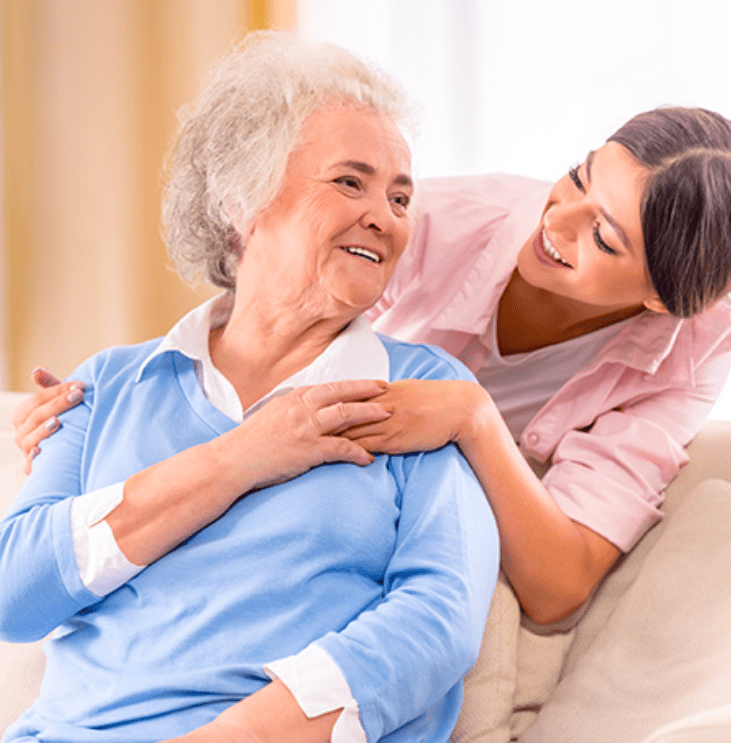
The Benefits of Companionship for the Elderly: Enhancing Quality of Life
October 7th, 2025Companion Caregiver, Companionship for the Elderly, Home Care, Homecare, Polish Care Services, Senior Services, Uncategorized,
Companionship for the elderly, benefits of companionship, social interaction, mental health, elderly care
As we age, the need for companionship becomes even more vital. For many elderly individuals, the golden years can often feel isolating, and loneliness can take a significant toll on their overall well-being. However, the positive effects of companionship for the elderly can transform their lives in myriad ways. In this article, we will explore the benefits of companionship, how it fosters social interaction, aids mental health, and enhances elderly care.
Understanding Companionship for the Elderly
Companionship goes beyond mere presence; it involves meaningful interactions and relationships that provide emotional support and connection. For elderly individuals, companionship can come from family members, friends, or caregivers. The act of spending time with others promotes feelings of belonging and purpose, which are essential for maintaining a fulfilling life.
Benefits of Companionship: Emotional and Psychological Support
One of the prime benefits of companionship for the elderly is emotional and psychological support. Social interaction plays a crucial role in mental wellness, helping to combat loneliness and depression. Regular companionship can provide a sense of stability and comfort, creating an environment where elderly individuals feel valued and understood.
Loneliness has been linked to various health issues, including increased risk of cognitive decline and physical ailments. A study from the National Institute on Aging emphasizes that social engagement is directly related to health outcomes in older populations. Therefore, fostering connections through companionship not only uplifts spirits but also supports better health.
Enhancing Mental Health and Well-being
The role of companionship in enhancing mental health cannot be overstated. Positive social interactions have been shown to reduce stress, anxiety, and symptoms of depression in elderly individuals. When older adults engage with companions, they are more likely to share their thoughts and feelings, facilitating emotional expression.
Regular companionship leads to higher levels of happiness and a more positive outlook on life. Participating in enjoyable activities with friends or caregivers can stimulate the mind, making it easier for the elderly to cope with the challenges of aging. This is especially crucial as mental health directly impacts physical health; when one feels mentally well, they are less likely to experience fatigue, pain, and other physical issues.
Promoting Social Interaction and Preventing Isolation
One of the most significant benefits of companionship for the elderly is its ability to promote social interaction. As people age, their social circles can diminish due to various reasons such as retirement, the loss of loved ones, or health-related limitations. It becomes essential to create new connections and maintain existing relationships.
Social interaction helps keep the mind active. Engaging in conversations, participating in community activities, or even playing games increases mental stimulation, which can ward off cognitive decline. Many communities offer programs specifically designed to bring seniors together, encouraging group activities that foster new friendships.
Moreover, the presence of companions often encourages the elderly to step outside their homes and engage in social events, such as workshops, exercise classes, or volunteer opportunities. This active involvement can significantly reduce feelings of isolation and boost overall happiness.
Companionship in Elderly Care
From a caregiving perspective, companionship plays a crucial role in elderly care. Caregivers who provide companionship not only assist with daily living tasks but also contribute positively to the emotional health of the elderly individuals they serve. This aspect of caregiving creates a nurturing environment where seniors feel safe and understood.
Moreover, companionship can enhance the quality of care provided. Caregivers who forge bonds with their clients can better understand their needs, preferences, and challenges. This leads to personalized care that goes beyond physical health, addressing emotional and mental health needs as well.
For families considering in-home care for their loved ones, finding caregivers who prioritize companionship can be a game-changer. It ensures elderly individuals receive not only physical support but also emotional connections that are fundamental to their quality of life.
Encouraging Healthy Habits Through Companionship
Another significant benefit of companionship for the elderly is the encouragement of healthy habits. When individuals have companions, they are more likely to engage in activities that promote physical health. Whether it’s going for walks, preparing healthy meals together, or participating in exercise classes, companionship fosters an active lifestyle.
Shared meals, for example, not only provide nutritional benefits but can also be a source of joy and connection. Companionship can motivate seniors to maintain a balanced diet and stay active, both of which are crucial for preventing diseases and maintaining mobility.
Exploring New Interests and Hobbies
Companionship invites the opportunity to explore new interests and hobbies. Elderly individuals can find joy in learning new skills or rediscovering old passions when they have someone to share the experience with. Whether it’s attending art classes, gardening, or joining book clubs, companionship encourages exploration and creativity.
Engaging in new activities with companions can provide a sense of adventure and fulfillment that may have diminished over the years. This aspect of companionship not only combats boredom but also promotes mental sharpness and emotional satisfaction.
The Role of Technology in Companionship
In today’s digital age, technology can also play a significant role in enhancing companionship for the elderly. Virtual connections, through video calls or social media, can bridge the gap between seniors and their loved ones, especially if they live far apart. Various apps and platforms can facilitate group activities, like virtual game nights or online classes, allowing seniors to interact with peers from the comfort of their homes.
Using technology to foster companionship can help keep seniors engaged and connected, reducing feelings of isolation even when physical interaction is not possible.
Conclusion
The benefits of companionship for the elderly are extensive, impacting emotional health, social interaction, and overall quality of life. It’s essential for elderly individuals to maintain connections, whether through family, friends, or caregivers, to promote mental well-being and a fulfilling lifestyle.
As society becomes increasingly aware of the challenges faced by elderly individuals, fostering a culture of companionship will be vital in enhancing their quality of life. Encouraging social engagement, emotional support, and active living can lead to healthier, happier aging experiences.
In the pursuit of aging gracefully, companionship serves as a cornerstone of emotional health,
social connection, and overall well-being. Embracing companionship not only enriches the lives of the elderly but also helps them navigate the complexities of aging with dignity and joy. By prioritizing relationships and fostering interactions, we can create supportive environments that honor the needs of our aging loved ones.
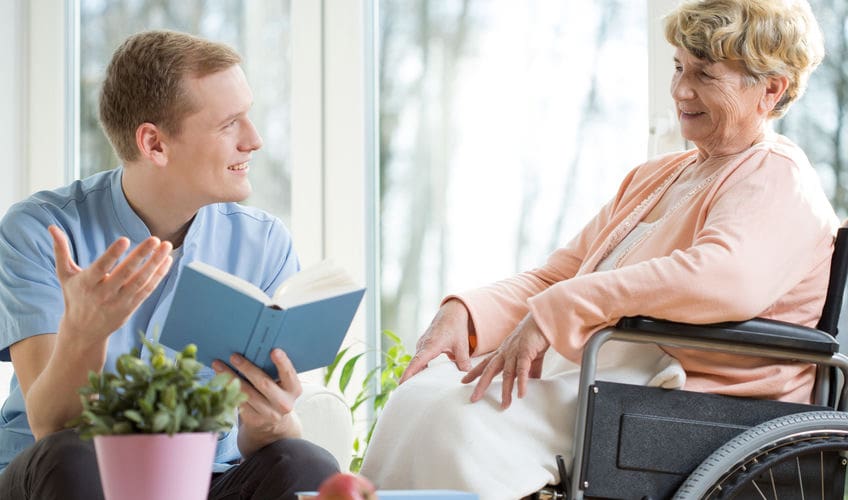
Nurturing the Golden Years: Comprehensive Guide to Elderly Care
September 7th, 2025aging in place, Caregiver Agency, Elderly Care, Homecare,
As we age, our needs evolve, and ensuring our elderly loved ones receive the care and support they need becomes paramount. At Polish Care Services, we are dedicated to providing exceptional care while enhancing the quality of life for seniors. This comprehensive guide will delve into key aspects of elderly care, discussing best practices, vital considerations, and innovative approaches to help families navigate this important journey.
Understanding the Scope of Elderly Care
Elderly care encompasses a myriad of services designed to assist older individuals in their daily lives. These services can range from basic assistance with daily activities to more specialized medical care. The goal is to provide a supportive environment that promotes independence, dignity, and quality of life.
Key Areas of Elderly Care:
Personal Care Assistance: This includes help with daily living activities such as bathing, dressing, grooming, and mobility.
Healthcare Management: Regular health check-ups, medication management, and coordination with healthcare providers ensure that seniors maintain their health.
Social Engagement: Activities that promote social interaction, such as community groups, outings, and hobbies, help combat loneliness and depression.
Nutrition and Meal Preparation: Providing balanced and nutritious meals is vital for seniors to maintain health and energy.
Safety and Fall Prevention: Creating a safe living environment by addressing potential hazards and implementing fall prevention strategies.
The Importance of Personalized Care Plans
Every individual is unique, and their care should reflect their specific needs, preferences, and lifestyle. Crafting a personalized care plan is crucial for effective elderly care.
Steps to Creating a Personalized Care Plan:
Assessment of Needs: Conduct a comprehensive assessment to identify physical, emotional, and social needs.
Involvement of the Senior: Engage the senior in developing their care plan to ensure it aligns with their preferences and values.
Family and Caregiver Input: Collaborate with family members and caregivers to create a well-rounded and effective plan.
Regular Review and Adjustments: Continuously evaluate the care plan to accommodate changing needs over time.
Promoting Independence and Dignity
Encouraging independence is a cornerstone of elderly care. It promotes self-esteem and confidence among seniors while allowing them to maintain control over their lives.
Strategies to Promote Independence:
Adaptive Aids: Provide assistive devices such as walkers, grab bars, and shower chairs to support mobility and daily activities.
Encouragement: Support seniors in their attempts to complete tasks independently, offering assistance only when needed.
Skills Development: Engage seniors in activities that help develop or maintain skills that enhance their independence, such as cooking or managing finances.
Nutrition: The Foundation of Healthy Aging
Proper nutrition plays a critical role in the health and well-being of seniors. A well-balanced diet supports physical health, boosts immunity, and enhances mental function.
Key Nutritional Tips for Seniors:
Focus on Nutrient-Dense Foods: Encourage seniors to include fruits, vegetables, whole grains, lean proteins, and healthy fats in their diet.
Stay Hydrated: Ensure seniors drink enough water throughout the day to prevent dehydration, which can lead to serious health issues.
Consider Special Dietary Needs: Be mindful of any food allergies, intolerances, or medical conditions requiring specific dietary restrictions.
Meal Planning: Assist with meal planning to introduce variety and ensure that nutritional needs are met.
The Role of Socialization in Elderly Care
Social interaction is vital for emotional well-being and overall health. Many seniors experience loneliness and isolation, which can have adverse effects on mental health.
Fostering Social Engagement:
Encourage Group Activities: Join clubs, classes, or workshops that foster socialization and skill development.
Regular Family Visits: Schedule family gatherings or visits to provide companionship and maintain strong family bonds.
Technology Use: Introduce seniors to technology that enables them to connect with friends and family virtually, such as video calls and social media.
Managing Healthcare Needs
Elderly individuals often have multiple healthcare needs that require careful management. Coordination between healthcare providers, caregivers, and family members is essential.
Best Practices for Healthcare Management:
Regular Check-Ups: Schedule routine visits with healthcare providers to monitor health and catch any potential issues early.
Medication Management: Use pill organizers or medication management apps to ensure medications are taken correctly and on time.
Keep Records: Maintain a detailed health record that includes medical history, current medications, and any recent diagnoses or treatments.
Advanced Care Planning: Discuss and document healthcare preferences and advance directives to ensure that seniors’ wishes are honored.
Safety Considerations for Seniors
Creating a safe living environment is a fundamental aspect of elderly care. Falls and accidents are common among seniors and can lead to severe injuries.
Tips for Enhancing Safety at Home:
Remove Clutter: Keep walkways clear of obstacles to reduce the risk of tripping.
Install Grab Bars: Place grab bars in bathrooms and other areas where seniors may need extra support.
Improve Lighting: Ensure that all areas of the home are well-lit to aid visibility, especially during nighttime.
Use Non-Slip Mats: Place non-slip mats in bathrooms and kitchens to prevent slip and fall accidents.
Emotional and Mental Well-Being
Mental health is as crucial as physical health in elderly care. Many seniors struggle with anxiety, depression, or cognitive decline as they age.
Promoting Mental Well-Being:
Engage in Mind-Boosting Activities: Encourage puzzles, games, reading, and other activities that stimulate cognitive function.
Create a Routine: Establishing a daily routine can provide structure and a sense of purpose.
Seek Professional Support: If mental health issues arise, consider consulting with a mental health professional experienced in geriatric care.
The Benefits of Respite Care for Caregivers
Caring for an elderly loved one can be rewarding but also physically and emotionally demanding. Respite care provides temporary relief for primary
caregivers, allowing them to recharge and focus on their well-being.
Understanding Respite Care:
– Short-Term Relief: Respite care offers caregivers a break by providing professional care for a limited time, whether it’s for a few hours, days, or weeks.
– Decreased Stress: Taking time off helps reduce caregiver burnout, which can impact the quality of care provided.
– Enhancing Relationships: Time away can improve the caregiver’s relationship with the elderly individual by allowing both parties to feel refreshed and reconnected.
– Flexibility: Respite care can be arranged on a regular schedule or as needed, offering flexibility to families struggling to balance caregiving with their personal lives.
Innovative Approaches to Elderly Care
As society evolves, so do the methods and technologies applied to elderly care. Embracing innovative solutions can drastically improve the way care is delivered.
Emerging Trends in Elderly Care:
- Telehealth Services: Telehealth has surged in popularity, allowing seniors to receive medical consultations and check-ups from the comfort of their homes.
- Wearable Technology: Devices that monitor health metrics (like heart rate, steps, and sleep patterns) can help caregivers track the health of elderly individuals and provide alerts for potential issues.
- Smart Home Technology: Home automation systems can help seniors manage daily activities and enhance security through voice-activated assistants and surveillance cameras.
- Virtual Reality: Some innovative programs use virtual reality to create immersive experiences that stimulate cognitive function and provide entertainment.
The Role of Community Resources
Navigating elderly care can sometimes feel overwhelming, but numerous community resources are available to assist families.
Types of Community Support:
– Senior Centers: Many local senior centers offer a range of activities, programs, and resources specifically designed for the elderly.
– Support Groups: Joining support groups for caregivers and families can provide emotional support and shared experiences that ease the caregiving journey.
– Transportation Services: Local programs often provide transportation for seniors who need assistance getting to appointments or social events.
– Educational Workshops: Community organizations may offer workshops focusing on aging, health management, and caregiving to equip families with essential knowledge.
The Impact of Faith and Culture
Faith and cultural beliefs can significantly influence the care provided to elderly individuals. Respecting these elements can create a more personalized and meaningful care experience.
Incorporating Faith and Culture into Elderly Care:
– Cultural Sensitivity: Understand and respect cultural preferences regarding health care, meal choices, and social interactions.
– Spiritual Support: If applicable, facilitate access to religious services or spiritual counseling that complements the emotional well-being of the elderly.
– Celebration of Traditions: Engage seniors in cultural traditions, language, and practices that enhance their sense of identity and belonging.
Transitioning to Assisted Living
For some elderly individuals, the transition to assisted living may be necessary when independent living is no longer safe. Understanding how to approach this change is crucial for families.
Steps for a Smooth Transition:
- Research Options: Explore various assisted living facilities, focusing on those that align with the specific needs and preferences of the elderly individual.
- Visit Facilities: Schedule visits to potential living spaces to assess the environment, amenities, and staff interactions.
- Involve the Senior: Engage the elderly individual in the decision-making process to ensure they feel comfortable with the change.
- Plan the Move: Create a comprehensive moving plan that includes organizing belongings, setting up the new space, and maintaining familiar items to make the transition smoother.
- Encourage Visits: Encourage family and friends to visit often during the transition to alleviate feelings of loneliness and maintain connections.
Conclusion
Elderly care is a multifaceted journey that requires a commitment to understanding the unique needs of older adults. By prioritizing personalized care, promoting independence, and fostering social connections, we can enhance the quality of life for seniors.
At Polish Care Services, we recognize that quality elderly care extends beyond medical assistance—it’s about providing emotional and social support, ensuring safety, and enriching lives. Our goal is to collaborate with families to create a nurturing environment where seniors can thrive.
Call to Action
If you’re seeking guidance or support for your elderly care needs, please contact Polish Care Services at polishcareservices.com. Together, we can create a personalized care plan that ensures your loved ones enjoy their golden years with dignity, respect, and joy!
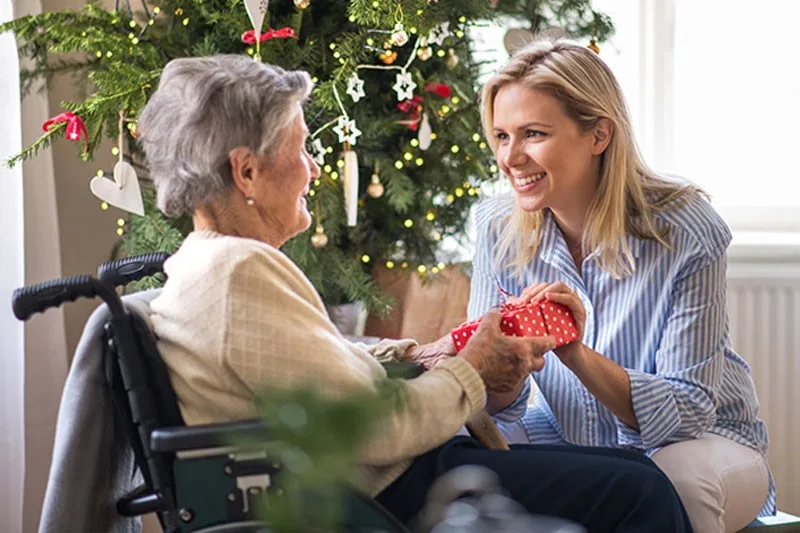
Essential Tips for Elderly Care and Caregivers During Holidays
November 28th, 2023Elderly Care, Homecare, Polish Care Services, Senior Care Services,
The holiday season is a time to celebrate with loved ones, and it’s important to ensure that elderly family members are included and well-cared for during this festive time. In this article, we will explore valuable insights and practical tips on elderly care, senior services, caregivers, and homecare to help you prepare for a joyful and safe holiday season with your elderly loved ones.
Understanding the Importance of Elderly Care:
As people age, their physical, emotional, and mental well-being becomes critical to maintaining their quality of life. During the holidays, it is especially important to provide appropriate care for the elderly, considering the potential challenges they may face. From mobility issues to feelings of loneliness, understanding these challenges is key to addressing them effectively.
Exploring Senior Services and Resources:
Various senior services and resources are available to support the well-being of the elderly during the holidays. Local senior centers and community programs offer opportunities for socialization and engagement. Additionally, building a strong support network of family, friends, and neighbors can provide important assistance and companionship. Online resources and social media groups can also connect seniors to valuable information and communities tailored to their needs. Furthermore, transportation services are crucial for ensuring the elderly can attend holiday events and gatherings.
Selecting the Right Caregiver:
Choosing the right caregiver for your elderly loved one is of paramount importance. When evaluating caregiver candidates, it is crucial to consider the specific needs of the elderly individual and the caregiver’s qualifications, expertise, and experience. Seeking professional caregivers or homecare agencies can provide additional peace of mind. Thoroughly interviewing potential caregivers and conducting background checks are vital steps to ensure the safety and well-being of the elderly during the holidays and beyond.
Preparing the Home:
Creating a safe and comfortable environment in the home is essential for elderly individuals during the holiday season. Taking into consideration the unique needs of seniors, such as mobility aids and equipment, can help prevent accidents and promote independence. Ensuring proper housekeeping and minimizing hazards are additional measures to consider to avoid potential risks.
Managing Medications and Health Needs:
As many seniors rely on medication management, it is crucial to organize medication schedules and ensure adherence during the busy holiday season. Effective communication with healthcare providers and primary physicians is also essential to address any potential health concerns. Preparing emergency plans and having easy access to healthcare contacts can provide peace of mind during the holidays.
Enhancing Emotional Well-being:
Emotional support is crucial for the elderly during the holiday season. Loneliness can be particularly challenging, so engaging in meaningful activities and traditions can help combat these feelings. Encouraging the participation of volunteers and involving community organizations can foster a sense of belonging and provide added emotional support. Additionally, being vigilant about mental health considerations and identifying signs of depression is crucial for the overall well-being of seniors.
Nutrition and Holiday Meals:
Proper nutrition is vital for the health of the elderly during the holidays. Considering dietary restrictions and health conditions when planning meals is crucial. Modifying recipes to accommodate special diets and ensuring adequate hydration are key elements of elderly care during this time of celebration.
Gift Ideas for Elderly Loved Ones:
When selecting gifts for elderly family members, it is important to consider their needs and preferences. Thoughtful and practical gift ideas can include items that make daily life easier or contribute to their hobbies and interests. Creating memory and photo albums can also be a meaningful way to celebrate cherished memories and foster emotional connections.
Engaging in Social Activities:
Combatting loneliness and social isolation is crucial for the elderly during the holiday season. Organizing social activities and gatherings that include intergenerational interactions can provide opportunities for connection and joy. Additionally, utilizing technology to stay connected with distant loved ones, such as video calls or social media, can help bridge the distance and promote social bonds.
Wrapping Up the Holiday Season:
As the holiday season comes to a close, it is essential to reflect on the experiences and lessons learned during this special time. Preparing and planning for post-holiday adjustments is important to ensure a smooth transition back to the daily routine. Additionally, considering long-term elderly care considerations and planning for the future can help establish a solid foundation for ongoing well-being.
Conclusion:
Preparing for the holidays with the elderly requires careful consideration of their unique needs and challenges. By understanding the significance of elderly care, exploring senior services and resources, selecting the right caregiver, preparing the home, managing medications and health needs, enhancing emotional well-being, focusing on nutrition, finding thoughtful gifts, engaging in social activities, and planning for the future, you can provide a safe, joyful, and meaningful holiday season for your elderly loved ones.
Polish Care Services provide non medical live in or hourly services to assist the elderly with daily activities.
Credit: Reece Washington
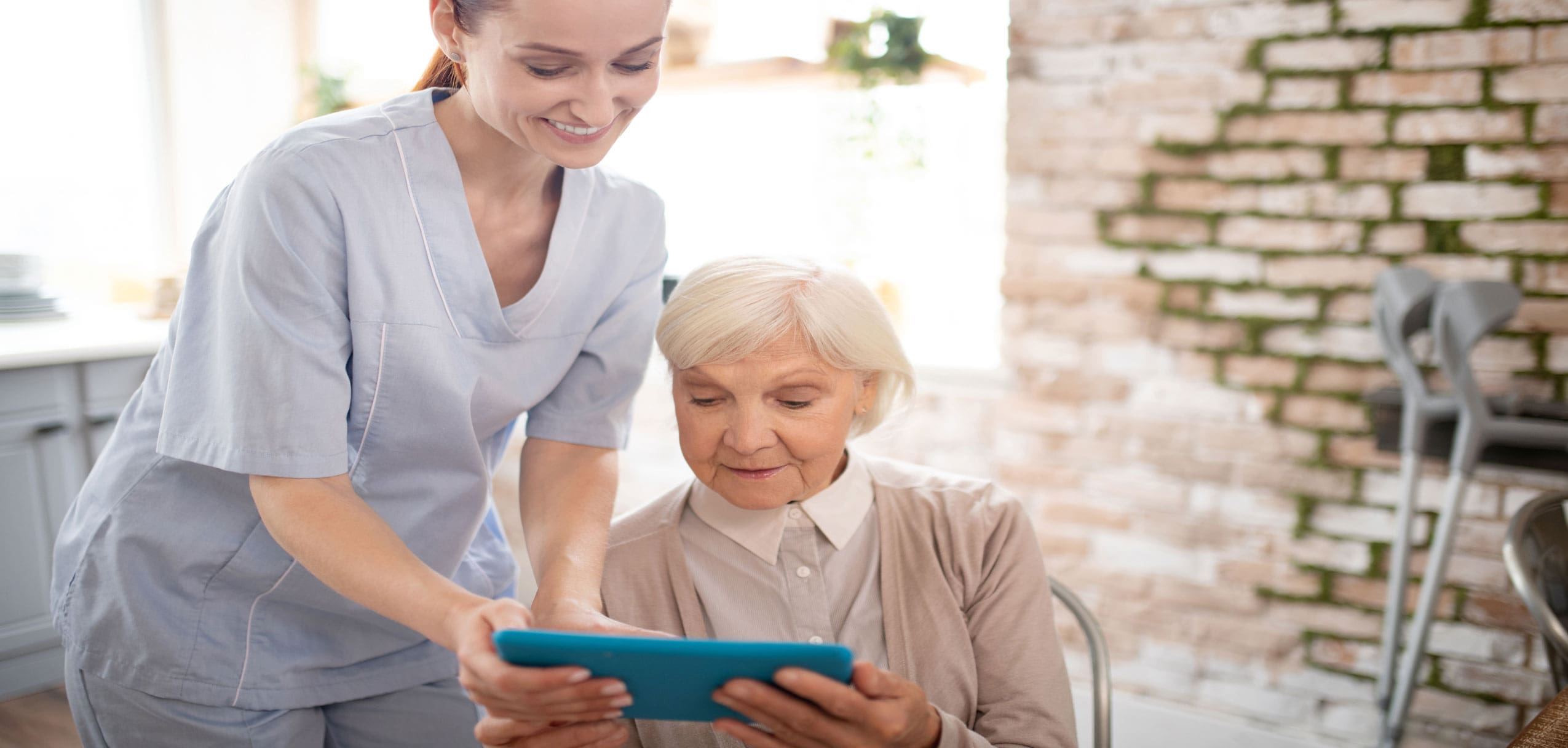
AI Benefits for the Elderly and Disabled
June 15th, 2023aging in place, Alzheimer's Care, Caregiver Employment, Caregiver job, Caregiver Service, Companion Caregiver, Dementia Care, Elderly Care, Fall Activities for Seniors, Hire CNA, Hire HHA, Hire PCA, Home Healthcare, Homecare, House Cleaning, In Home Care, Long Term Care, Outdoor Activities for Seniors, Polish Care Services, Retirement Plans for Seniors, Senior Care Services, Spring Activities, Summer Activities for Seniors,
Although there is so much consternation and hype, Artificial Intelligence (AI) can benefit the elderly and disabled population in many ways. Some of the benefits include:
- Health monitoring and assistance through wearable devices and smart home systems: AI can be used to monitor the health of elderly individuals through wearable devices and smart home systems. These devices can track vital signs, such as heart rate and blood pressure, and alert caregivers or medical professionals if there are any concerning changes. Smart home systems can also be used to monitor the movements and activities of elderly individuals, providing an additional layer of safety and security.
- Medication management: AI can assist with medication management by providing reminders to take medications, tracking medication usage, and alerting caregivers or medical professionals if there are any missed doses or potential drug interactions.
- Social interaction and companionship: AI can provide social interaction and companionship to elderly individuals through virtual companions, such as chatbots or virtual assistants. These companions can engage in conversation, provide entertainment, and help alleviate feelings of loneliness and isolation.
- Cognitive stimulation and memory support: AI can provide cognitive stimulation and memory support to elderly individuals through games, puzzles, and other activities designed to exercise the brain and improve cognitive function. AI can also assist with memory support by providing reminders for important events or appointments.
- Daily living assistance: AI can assist with daily living tasks, such as meal preparation, housekeeping, and personal care. This can help elderly individuals maintain their independence and continue living in their own homes for longer.
- Increased independence: By providing assistance with daily living tasks, health monitoring, medication management, and other areas, AI can help elderly individuals maintain their independence and continue living in their own homes for longer.
- Lower healthcare costs, better transportation, and longer employment: AI can help lower healthcare costs by improving health monitoring and early detection of potential health issues. AI can also assist with transportation by providing ride-sharing services or autonomous vehicles designed for elderly individuals. Additionally, AI can help extend employment opportunities for elderly individuals by providing job-matching services or remote work opportunities.
- Virtual companions: As mentioned earlier, virtual companions such as chatbots or virtual assistants can provide social interaction and companionship to elderly individuals.
- Anti-aging research: AI can assist with anti-aging research by analyzing large amounts of data to identify potential treatments or preventative measures for age-related diseases.
- At-home health monitoring: As mentioned earlier, AI can assist with at-home health monitoring through wearable devices and smart home systems.
- Smart device-assisted daily living: Smart devices equipped with AI technology can assist with daily living tasks such as turning on lights, adjusting the thermostat, or locking doors.
- Smart device-assisted fall detection: Smart devices equipped with AI technology can detect if an elderly individual has fallen and alert caregivers or medical professionals.
- Improved quality of care: By providing assistance in areas such as health monitoring, medication management, daily living assistance, and more, AI can help improve the overall quality of care for elderly individuals.
AI is also helpful in intelligent tracking of biometric information to early diagnosis of diseases, understanding the treatment pathways, and helping clinicians to take care of elderly and disabled people and treat them more efficiently.
Polish Care Services team provides blogs and news articles that are not only informative and entertaining, but can enhance the wellbeing of seniors and disabled in Connecticut and Sarasota County in Florida
Credit: Bing AI, Google AI, Peter Powell

Caring for Seniors: Providing Care for Seniors During COVID-19
August 25th, 2020Caregiver Employment, Caregiver Service, Companion Caregiver, Companion Senior Care, Homecare, House Cleaning, In Home Care, in home care assistance, Long Term Care, Office Cleaning,
COVID-19 is not going away any time soon. There are measures that caregivers can and should
take to protect themselves and the people they care for. This article discusses how these measures
protect everyone involved and keeps those in need of care from contracting COVID-19.
Understanding COVID-19 Spread
COVID-19 spreads between people in proximity to one another, less than six-feet apart via
respiratory droplets. When one person coughs, sneezes, or talks to another, the droplets produced
from that will land in the other person’s mouth and nose. The virus can spread from someone who
is infected but not showing symptoms.
How to Stay Safe
Hand washing is one of the main ways to help keep caregivers and those who need care safe. It
should be done frequently, especially after:
– Using the bathroom.
– Caring for someone who is sick.
– Leaving a public place.
– Blowing your nose.
– Changing a diaper.
– Touching your face, eyes, or mouth.
Use hand sanitizer with at least 60% alcohol if soap and water aren’t available.
Maintaining distance from others is another way to stay safe. Stay away from people who are sick
in your household. If you provide long term care at a facility or at a person’s home, limit
unnecessary close contact as much as possible.
Wear a mask when you are outside the house. A mask protects others from getting sick. This
includes while you are working with your care client. Gloves are also recommended when working
closely with someone else.
Keep disposable supplies like masks, gloves, hand sanitizer and other things specific to your care
client in a container at their home or at your facility for your use only.
Clean Frequently
Clean and disinfect surfaces frequently while you are working. This is also a good practice to
implement at home.
Stay Healthy
Be aware of the basic symptoms of COVID-19. These include fever, cough, and shortness of
breath. If you think you have any of these, take your temperature. Don’t take it right after
exercising or taking medication. Consider keeping a symptom diary to track any time you are
feeling unwell during the pandemic.
If you experience any of these symptoms or others, let your client know and plan for alternative
care, and get a COVID-19 test if symptoms are not going away.
Caregivers at Polish Care Services are committed to keeping clients safe during COVID-19.
Moreover, one caregiver to one patient in an in home care setting helps to minimize the risk of spread.
Contact us at 860-255-8278 to learn more about how we provide safe in home senior care.
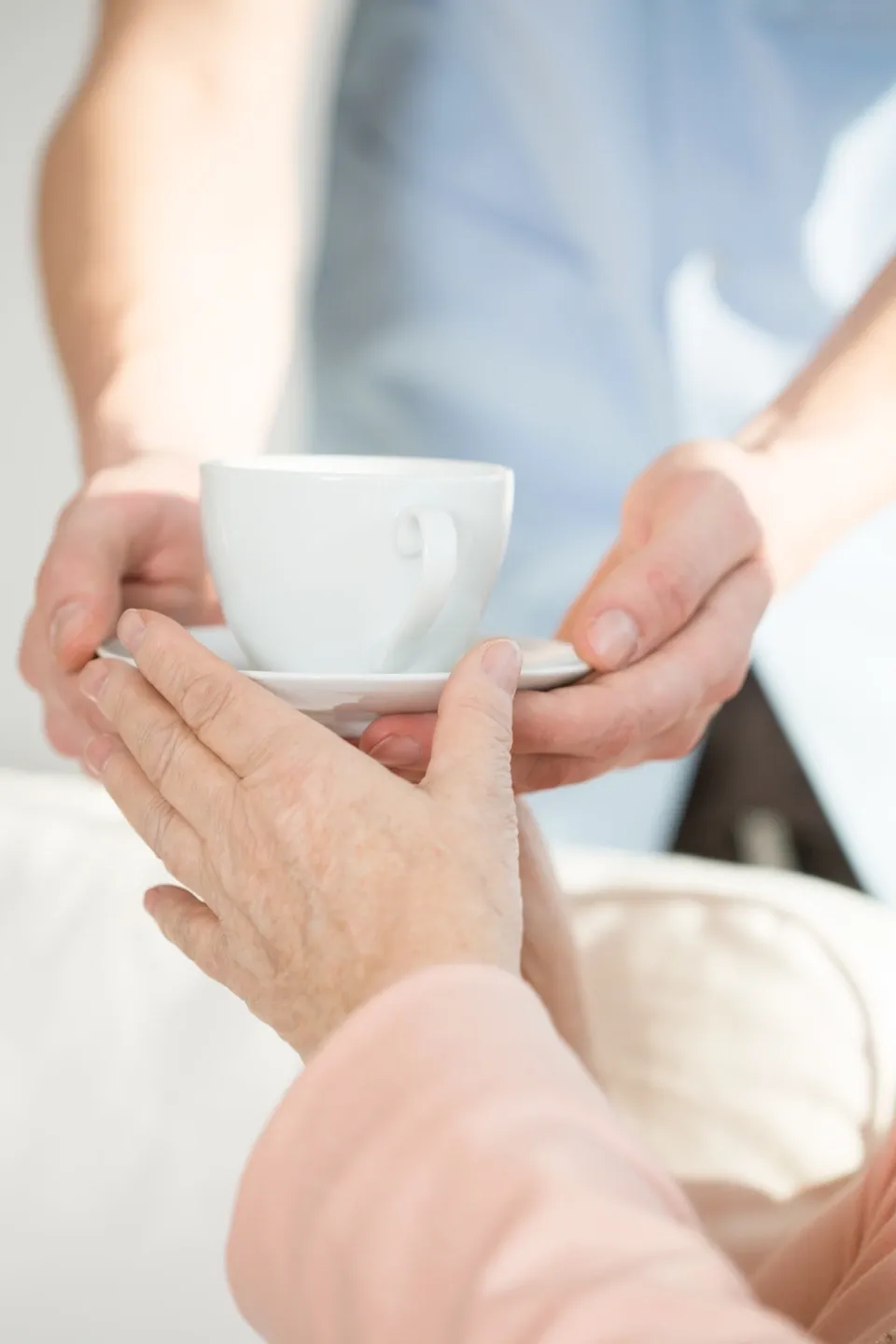
Caring for Seniors: The Caregiver Option
July 7th, 2020Caregiver Employment, Caregiver Service, Home Care, Home Healthcare, Homecare, House Cleaning, In Home Care, in home care assistance, Long Term Care, Polish Care Services, Senior Care Services,
If your elderly loved one is struggling with daily activities like shopping, bathing, or dressing independently, and wants to stay in their home, consider hiring a caregiver. This article discusses what a caregiver is, what their duties are, and tips for hiring one for your loved one.
What is a Caregiver?
A caregiver is someone who provides in-home care for someone who needs extra help doing daily tasks on an ongoing basis. They can also be employed when a loved one is recovering from a temporary illness or surgery.
What a Caregiver Does and Limits to Consider
A caregiver can help with things like driving to appointments, shopping, dressing, and bathing and serve as companions. Caregivers can also help seniors with any prescribed exercises given by therapists, attend appointments, and report any health concerns to family members or doctors that they observe. The duties of the caregiver will ultimately depend on the care needs of a loved one. But there are limits.
When hiring a caregiver, consider what the care needs of your loved one are realistically speaking. Senior care needs can change over time. So be prepared to consider other care options such as increasing hours, round-the-clock care, or moving to a facility if that is what is necessary and appropriate.
Things to Consider When Hiring a Caregiver
Considering your loved one’s care needs is important but it’s not the only thing you should factor in.
Finances- Insurance does not cover the cost of caregivers the majority of the time. Can your loved one or family afford to pay for caregivers now and increased needs in the future?
Family Agreement- Make sure that your loved one and family members involved with them and their care agree with the decision. If your loved one or other family members have different ideas about who the caregiver should be, it can cause significant conflict.
The Right Fit- Hiring a caregiver independently or going with the first agency you call may not be the right fit for your loved one. Talk with your loved one and family, ask questions of prospective agencies and do your research before you hire anyone.
If you’re not sure where to start in your caregiver search, contact Polish Care Services. Our staff will be happy to discuss our services with you!

Using Ultraviolet UV Rays for Coronavirus Covid-19 Sanitizing
April 19th, 2020aging in place, Caregiver Employment, Caregiver Service, Companion Caregiver, Dementia Care, Elderly Care, Home Care, Home Healthcare, Homecare, House Cleaning, In Home Care, Long Term Care, Polish Care Services, Senior Care Services,
Because of the Coronavirus Covid-19 pandemic, Polish Care Services team has been researching global solutions to eliminate viruses and bacteria, to better understand how to improve on care quality for its seniors and disabled clients, also to improve its residential and commercial cleaning operations.
Our primary source has always been the CDC and its guidelines. However we believe in gathering and analyzing enough scientific data from credible sources to make informed decisions, for more effective outcomes.
During our research for a no mess solution, we were enlightened about the benefits of Ultraviolet rays for sterilization purposes.
Coronavirus Covid-19 Survival and Transmission
According to the Annual Reviews Covid-19 type viruses transmission is seasonal and cyclical and will primarily occur during December through April. Transmission was found to be most efficient under 23°C/ 73.4°F/ 30% relative humidity RH conditions, and least efficient at 23°C/73.4°F/ 50% RH and 5°C /73.4° F/ 70% RH.
What is Ultra Violet light
Ultraviolet light is a type of electromagnetic radiation that is used for for summer tans, sunburns also makes black-light posters glow. However, too much exposure to UV radiation is damaging to living tissue.
UV is generally divided into three sub-bands:
● UVA, or near UV (315–400 nm)
● UVB, or middle UV (280–315 nm)
● UVC, or far UV (180–280 nm)
The greater the intensity and exposure, the more dangerous it is for organisms. UV-C is considered the most safe when used with precautions.
How does it Work
According to the National Institutes of Health NIH Ultraviolet short-wave radiation destroys DNA in living microorganisms.
The effectiveness of UVC’s is directly related to its intensity and exposure time.
Although UV-C LEDs are relatively new to the commercial market, it is becoming more popular in global communities.
UV-C LEDs targets a specific wavelength needed for disinfection. This is important considering that pathogens vary in their sensitivity to specific UV wavelengths. The benefits of LEDs are unlimited daily cycle, instant on/off and mercury free. Most handheld ultraviolet LED sanitizer wands has a shield that minimize light and radiation contact with user.
What are the Dangers
Dangers of too much exposure to Ultraviolet (UV) radiation is a known cause of skin cancer, skin aging, eye damage, and may affect the immune system.
Further research is needed for the consistent use of Ultraviolet sterilization, although most studies shows that the use of these devices with the proper precautions, can be effective and relatively safe. Virus in hard to reach areas such as cracks and crevices may not have the adequate exposure to be eradicated, and can still survive.
It is recommended to use sanitizing solutions with ultraviolet rays to be more effective.
Best Solutions
Best solutions are still social distancing, hand washing, disinfecting surfaces, and wearing mask when necessary. If possible, seniors and those with preexisting conditions should avoid areas with large groups or gatherings, as the risk of contracting the virus is more elevated in these settings.
In home care with a personal caregiver may be the best viable option. Without a vaccine, and because of the cyclical nature of the Covid-19 virus, this indicates occurrences will be seasonal and cyclical December – April.
Polish Care Services provides caregivers for seniors and disabled, we also provide cleaners for homes, and janitors for offices and business.
Please visit us at polishcareservices.com or phone 860-255-8278 or email care@polishcareservices.com so we can better understand your needs.
